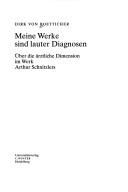| Listing 1 - 10 of 175 | << page >> |
Sort by
|

ISBN: 3825308618 9783825308612 Year: 1999 Volume: 165 Publisher: Heidelberg : Winter,
Abstract | Keywords | Export | Availability | Bookmark
 Loading...
Loading...Choose an application
- Reference Manager
- EndNote
- RefWorks (Direct export to RefWorks)
Book
ISBN: 1412360846 Year: 2007 Publisher: Chicoutimi : J.-M. Tremblay,
Abstract | Keywords | Export | Availability | Bookmark
 Loading...
Loading...Choose an application
- Reference Manager
- EndNote
- RefWorks (Direct export to RefWorks)
Book
Abstract | Keywords | Export | Availability | Bookmark
 Loading...
Loading...Choose an application
- Reference Manager
- EndNote
- RefWorks (Direct export to RefWorks)
Book
Year: 1954 Publisher: Roma: Ed. di storia e letteratura,
Abstract | Keywords | Export | Availability | Bookmark
 Loading...
Loading...Choose an application
- Reference Manager
- EndNote
- RefWorks (Direct export to RefWorks)
Book
Year: 2012 Publisher: Heidelberg : Universitätsverlag Winter,
Abstract | Keywords | Export | Availability | Bookmark
 Loading...
Loading...Choose an application
- Reference Manager
- EndNote
- RefWorks (Direct export to RefWorks)
Book
ISBN: 0231554508 9780231554503 9780231202329 9780231202336 Year: 2021 Publisher: New York, NY
Abstract | Keywords | Export | Availability | Bookmark
 Loading...
Loading...Choose an application
- Reference Manager
- EndNote
- RefWorks (Direct export to RefWorks)
"Though often seen as scientific or objective, medicine has a fundamentally narrative aspect. Much like how an author constructs meaning around fictional events, a doctor or patient narrates the course of an illness and treatment. In what ways have literary and medical storytelling intersected with and shaped each other? In Medical Storyworlds, Elena Fratto examines the relationship between literature and medicine at the turn of the twentieth century-a period when novelists were experimenting with narrative form and the modern medical establishment was taking shape. She traces how Russian writers such as Dostoevsky, Tolstoy, and Bulgakov responded to contemporary medical and public health prescriptions, placing them in dialogue with French and Italian authors including Romains and Svevo and such texts as treatises by Paul Broca and Cesare Lombroso. In nuanced readings of these works, Fratto reveals how authors and characters question the rhetoric and authority of medicine and public health in telling stories of mortality, illness, and well-being. In so doing, she argues, they provide alternative ways of thinking about the limits and possibilities of human agency and free will. Bridging the medical humanities, European literary studies, and Slavic studies, Medical Storyworlds shows how narrative theory and canonical literary texts offer a new lens on today's debates in medical ethics and bioethics"--
Book
Year: 2013 Publisher: London : Ubiquity Press,
Abstract | Keywords | Export | Availability | Bookmark
 Loading...
Loading...Choose an application
- Reference Manager
- EndNote
- RefWorks (Direct export to RefWorks)
In a celebratory moment of the Paradiso, Dante has Thomas go round the circle of sage spirits identifying each in turn in point of proper calling and confirming how it is that self is everywhere present to the other-than-self as a co-efficient of being in the endless and endlessly varied instantiation of that being. The image, at once perfectly Dantean and perfectly resplendent, underlies and informs these conversations of mine with Kenelm; for if in reading and rereading the cherished text, I have from time to time felt the need to enter a qualification, it is a matter here, as in the high consistory of paradise, of otherness as both contained and as authorized by sameness, as conditioned and set free by it for a life of its own. Never, in other words, is it a question in what follows of the stark alternativism of the sed contra, but instead a matter of formed friendship, of the kind of friendship which, conceived in love, makes for a sweet choreography of the spirit. (DOI: 10.5334/baa).
Periodical
Abstract | Keywords | Export | Availability | Bookmark
 Loading...
Loading...Choose an application
- Reference Manager
- EndNote
- RefWorks (Direct export to RefWorks)
Periodical
Abstract | Keywords | Export | Availability | Bookmark
 Loading...
Loading...Choose an application
- Reference Manager
- EndNote
- RefWorks (Direct export to RefWorks)
Culture --- Literature --- Literature and medicine
Book
Year: 1948 Publisher: Paris : Editions Denoël,
Abstract | Keywords | Export | Availability | Bookmark
 Loading...
Loading...Choose an application
- Reference Manager
- EndNote
- RefWorks (Direct export to RefWorks)
| Listing 1 - 10 of 175 | << page >> |
Sort by
|

 Search
Search Feedback
Feedback About UniCat
About UniCat  Help
Help News
News